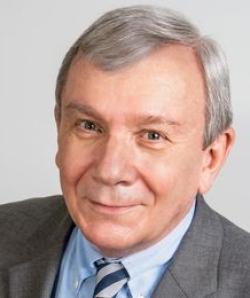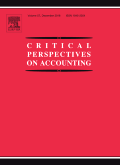Related Research Articles
Critical discourse analysis (CDA) is an interdisciplinary approach to the study of discourse that views language as a form of social practice. CDA combines critique of discourse and explanation of how it figures within and contributes to the existing social reality, as a basis for action to change that existing reality in particular respects. Scholars working in the tradition of CDA generally argue that (non-linguistic) social practice and linguistic practice constitute one another and focus on investigating how societal power relations are established and reinforced through language use. In this sense, it differs from discourse analysis in that it highlights issues of power asymmetries, manipulation, exploitation, and structural inequities in domains such as education, media, and politics.
Critical management studies (CMS) is a loose but extensive grouping of theoretically informed critiques of management, business and organisation, grounded originally in a critical theory perspective. Today it encompasses a wide range of perspectives that are critical of traditional theories of management and the business schools that generate these theories.

Population health has been defined as "the health outcomes of a group of individuals, including the distribution of such outcomes within the group". It is an approach to health that aims to improve the health of an entire human population. It has been described as consisting of three components. These are "health outcomes, patterns of health determinants, and policies and interventions".

John James Kirton is professor emeritus of political science and the director and founder of the G7 Research Group, director and founder of the G20 Research Group, founder and co-director of the Global Health Diplomacy Program, and founder and co-founder of the BRICS Research Group, based at University of Trinity College in the University of Toronto.
Accounting ethics is primarily a field of applied ethics and is part of business ethics and human ethics, the study of moral values and judgments as they apply to accountancy. It is an example of professional ethics. Accounting was introduced by Luca Pacioli, and later expanded by government groups, professional organizations, and independent companies. Ethics are taught in accounting courses at higher education institutions as well as by companies training accountants and auditors.

Alastair MacDonald Taylor was a Canadian historian, filmmaker, United Nations official, professor of geography and political studies, and interdisciplinary thinker. He co-authored the first world-history textbook published in the United States. He played an active role in, and became the leading chronicler of, the diplomatic intervention by the United Nations to secure the independence of Indonesia. He was also among the first to apply systems theory to the historical development of human societies.
Human services is an interdisciplinary field of study with the objective of meeting human needs through an applied knowledge base, focusing on prevention as well as remediation of problems, and maintaining a commitment to improving the overall quality of life of service populations. The process involves the study of social technologies, service technologies, and scientific innovations designed to ameliorate problems and enhance the quality of life of individuals, families and communities to improve the delivery of service with better coordination, accessibility and accountability. The mission of human services is to promote a practice that involves simultaneously working at all levels of society in the process of promoting the autonomy of individuals or groups, making informal or formal human services systems more efficient and effective, and advocating for positive social change within society.
Accounting research examines how accounting is used by individuals, organizations and government as well as the consequences that these practices have. Starting from the assumption that accounting both measures and makes visible certain economic events, accounting research has studied the roles of accounting in organizations and society and the consequences that these practices have for individuals, organizations, governments and capital markets. It encompasses a broad range of topics including financial accounting research, management accounting research, auditing research, capital market research, accountability research, social responsibility research and taxation research.
Accounting, Organizations and Society is a peer-reviewed academic journal published by Elsevier. Its editors-in-chief are Marcia Annisette, Mark E. Peecher, and Keith Robson. The journal focuses on the relationships between accounting and both human behaviour and organizations' structures, processes, social, and political environments: that is, relationships among accounting, organizations, and society.
Ernest Anthony (Tony) Lowe was a British economist, and Professor of Accounting and Financial Management at the University of Sheffield, known for his work on management control, and management control systems.

Gary John Previts an American accountant, is a Distinguished University Professor Emeritus at Case Western Reserve University. From 1979 to June 30, 2023 he was Professor of Accountancy in the Weatherhead School of Management teaching undergraduate, masters, and doctoral courses. He is known for his work on the history of the theory and practice of accountancy.

Yves Gendron is a Canadian accounting academic at Laval University in Quebec. He is a qualitative researcher, largely known for his studies in corporate governance, social accountability of auditors, and professional legitimacy. He is co-editor-in-chief of Critical Perspectives on Accounting.

Critical Perspectives on Accounting is a peer-reviewed academic journal published by Elsevier. The aim of the journal is to study how accounting works within society and to promote forms of accounting that are in the public interest. It was established in 1990 with David J. Cooper, and A.M. Tinker as founding editors-in-chief. They were succeeded in 2008 by Marcia Annisette, Christine Cooper, and Dean Neu. The current editors-in-chief are Jane Andrew, Christine Cooper, and Yves Gendron.
Cheryl Lehman, also professionally known as Cheryl R. Lehman, is a professor at Hofstra University and an accounting academic.

Prem Nath Sikka, Baron Sikka is a British-Indian accountant and academic. He holds the position of Professor of Accounting at the University of Sheffield, and is Emeritus Professor of Accounting at the University of Essex.

Medical sociology is the sociological analysis of medical organizations and institutions; the production of knowledge and selection of methods, the actions and interactions of healthcare professionals, and the social or cultural effects of medical practice. The field commonly interacts with the sociology of knowledge, science and technology studies, and social epistemology. Medical sociologists are also interested in the qualitative experiences of patients, often working at the boundaries of public health, social work, demography and gerontology to explore phenomena at the intersection of the social and clinical sciences. Health disparities commonly relate to typical categories such as class and race. Objective sociological research findings quickly become a normative and political issue.

Marcia Annisette is a Trinidadian-Canadian accounting academic, and currently the Vice Provost Academic at York University in Toronto. She is co-editor-in-chief of Accounting, Organizations and Society. She has previously helld positions as the Associate Dean Students and the Associate Dean Academic at the Schulich School of Business. She is a former co-editor-in-chief of Critical Perspectives on Accounting. Her research looks at the social organization of the accounting profession, addressing issues of race, class, and nationality.

Christine Cooper is a British accounting academic. She holds a Chair in Accounting at the University of Edinburgh Business School and is co-editor-in-chief of Critical Perspectives on Accounting. Her research examines the economic, political and social impact of accounting.
Public interest accounting is a branch of academic accounting research that attempts to understand how accounting practices and the activities of the accounting profession impact the public interest. Public interest-focused accounting research sheds light on the role of accounting in perpetuating unequal social relations, while attempting to rectify such issues via scholarship and the dissemination of research results. It is heavily influenced by the ideas of social theorists, including but not limited to Marx, Gramsci, Foucault, Bourdieu, and Said.

Dean Neu is a professor of accounting at York University, Canada. He is a former editor of Critical Perspectives on Accounting, a former board member of the Parkland Institute and the Director of the Public Interest Accounting Group at York University.
References
- ↑ Cooper, David. "CV" (PDF). Retrieved December 16, 2018.
- ↑ Centre for Accounting and Society. "Professor David Cooper and Professor Christine Cooper join the University of Edinburgh Business School". University of Edinburgh Business School. University of Edinburgh. Retrieved 14 December 2018.
- ↑ Cooper, David; Sherer, Michael (1984). "The value of corporate accounting reports: arguments for a political economy of accounting". Accounting, Organizations and Society. 9 (3–4): 207–232.
- ↑ Cooper, David (1984). "Discussion of towards a political economy of accounting". Accounting, Organizations and Society. 5 (1): 161–166.
- ↑ Gray, R.; Kouhy, R.; Lavers, S. (1995). "Corporate social and environmental reporting: a review of the literature and a longitudinal study of UK disclosure". Accounting, Auditing & Accountability Journal. 8 (2): 47–77.
- ↑ Tinker, A.; Neimark, M (1987). "The role of annual reports in gender and class contradictions at General Motors: 1917–1976". Accounting, Organizations and Society. 12 (1): 71–88.
- ↑ Preston, Alistair; Cooper, David; Scarbrough, Paul; Chilton, Rob (1995). "Changes in the code of ethics of the US accounting profession, 1917 and 1988: The continual quest for legitimation". Accounting, Organizations and Society. 20 (6): 507–546.
- ↑ Cooper, David; Greenwood, Roysten; Hinings, Bob; Brown, Rob (1998). "Globalization and nationalism in a multinational accounting finn: the case of opening new markets in Eastern Europe". Accounting, Organizations and Society. 23: 531–548.
- ↑ Neu, Dean; Cooper, David; Everett, Jeff (2001). "Critical Accounting Interventions". Critical Perspectives on Accounting. 12 (6): 3–28.
- ↑ Berry, A.; Capps, T.; Ferguson, P.; Hopper, T.; Cooper, D. (1985). "Management control in an area of the NCB: rationales of accounting practices in a public enterprise". Accounting, Organizations and Society. 10 (1): 3–28.
- ↑ Radcliffe, Vaughan (2008). "Public secrecy in auditing: What government auditors cannot know". Critical Perspectives on Accounting. 19 (1): 99–126.
- ↑ Neu, Dean (2000). "Presents" for the "Indians": land, colonialism and accounting in Canada". Accounting, Organizations and Society. 25 (2): 163–184.
- ↑ Martinez, D.; Cooper, D. (2017). "Assembling international development: Accountability and the disarticulation of a social movement". Accounting, Organizations and Society: 6–20.